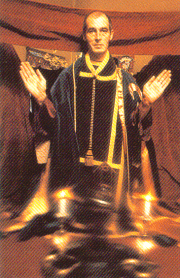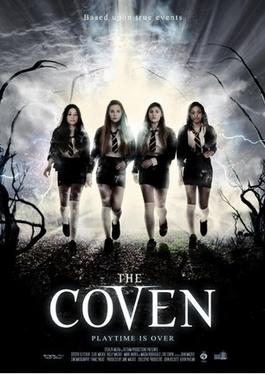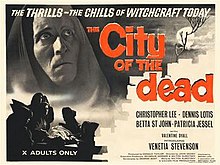
A Book of Shadows is a book containing religious text and instructions for magical rituals found within the Neopagan religion of Wicca. Since its conception, it has made its way into many pagan practices and paths. The most famous Book of Shadows was created by the pioneering Wiccan Gerald Gardner sometime in the late 1940s or early 1950s, and which he utilised first in his Bricket Wood coven and then in other covens which he founded in following decades. The Book of Shadows is also used by other Wiccan traditions, such as Alexandrian Wicca and Mohsianism, and with the rise of books teaching people how to begin following non-initiatory Wicca in the 1970s onward, the idea of the Book of Shadows was then further propagated amongst solitary practitioners unconnected to earlier, initiatory traditions.

Alex Sanders, born Orrell Alexander Carter, who went under the craft name Verbius, was an English occultist and High Priest in the modern Pagan religion of Wicca, responsible for founding, and later developing with Maxine Sanders, the tradition of Alexandrian Wicca, also called Alexandrian Witchcraft, during the 1960s.

Virgin Witch is a British horror sexploitation film directed by Ray Austin and starring Ann and Vicki Michelle, Patricia Haines and Neil Hallett. A prospective model and her sister join a coven of white wizards.

The Witches, released in the United States as The Devil's Own, is a 1966 British horror film directed by Cyril Frankel and starring Joan Fontaine, Alec McCowen, Kay Walsh, Ann Bell, Ingrid Boulting and Gwen Ffrangcon-Davies. Made by Hammer Films, it was adapted by Nigel Kneale from the 1960 novel The Devil's Own by Norah Lofts, published under the pseudonym Peter Curtis.
The horror-of-the-demonic film is one of three subgenres of the horror film that grew out of mid- and late-20th-century American culture.
The history of Wicca documents the rise of the Neopagan religion of Wicca and related witchcraft-based Neopagan religions. Wicca originated in the early 20th century, when it developed amongst secretive covens in England who were basing their religious beliefs and practices upon what they read of the historical witch-cult in the works of such writers as Margaret Murray. It also is based on the beliefs from the magic that Gerald Gardner saw when he was in India. It was subsequently founded in the 1950s by Gardner, who claimed to have been initiated into the Craft – as Wicca is often known – by the New Forest coven in 1939. Gardner's form of Wicca, the Gardnerian tradition, was spread by both him and his followers like the High Priestesses Doreen Valiente, Patricia Crowther and Eleanor Bone into other parts of the British Isles, and also into other, predominantly English-speaking, countries across the world. In the 1960s, new figures arose in Britain who popularized their own forms of the religion, including Robert Cochrane, Sybil Leek and Alex Sanders, and organizations began to be formed to propagate it, such as the Witchcraft Research Association. It was during this decade that the faith was transported to the United States, where it was further adapted into new traditions such as Feri, 1734 and Dianic Wicca in the ensuing decades, and where organizations such as the Covenant of the Goddess were formed.

Eileen Mary Theresa Daly is an English actress, director, film producer, writer, singer, presenter, songwriter and former adult film performer. She is also a contemporary scream queen, having starred in numerous cult horror films and fronts her own band Eileen and Ben.

Cultural depictions of the Salem witch trials abound in art, literature and popular media in the United States, from the early 19th century to the present day. The literary and dramatic depictions are discussed in Marion Gibson's Witchcraft Myths in American Culture and see also Bernard Rosenthal's Salem Story: Reading the Witch Trials of 1692
Evil Calls: The Raven, also known as The Legend of Harrow Woods, Alone in the Dark and simply as Evil Calls, is a 2011 British horror film written, produced and directed by Richard Driscoll, starring Rik Mayall, Jason Donovan, Eileen Daly, Norman Wisdom and Robin Askwith.

The Uncanny is a 1977 British-Canadian anthology horror film directed by Denis Héroux, written by Michel Parry, and starring Peter Cushing, Donald Pleasence, Ray Milland, Joan Greenwood, Donald Pilon, Samantha Eggar, and John Vernon.
In Modern English, the term Wicca refers to Wicca, the religion of contemporary Pagan witchcraft. It is used within the Pagan community under competing definitions. One refers to the entirety of the Pagan Witchcraft movement, while the other refers explicitly to traditions included in what is now called British Traditional Wicca.

Witchcraft is a 1964 British horror film directed by Don Sharp and starring Lon Chaney Jr., Jack Hedley and Jill Dixon. The script was written by Harry Spalding.
"Fearful Pranks Ensue" is the fourth episode of the third season of the anthology television series American Horror Story, which premiered on October 30, 2013, on the cable network FX. This episode is rated TV-MA (LSV).

Jamie Brewer is an American actress and model. She is best known for her roles in the FX horror anthology television series American Horror Story. In its first season, Murder House, she portrayed Adelaide "Addie" Langdon; in the third season, Coven, she portrayed Nan, an enigmatic and clairvoyant witch; in the fourth season Freak Show, she portrayed Chester Creb's vision of his doll, Marjorie; in the seventh season Cult, she portrayed Hedda, a member of the 'SCUM' crew, led by feminist Valerie Solanas; and she also returned to her role as Nan in the eighth season, Apocalypse.
"The Sacred Taking" is the eighth episode of the third season of the anthology television series American Horror Story, which premiered on December 4, 2013, on the cable network FX. The episode was written by Ryan Murphy and directed by Alfonso Gomez-Rejon.
"The Magical Delights of Stevie Nicks" is the tenth episode of the third season of the anthology television series American Horror Story, which premiered on January 8, 2014, on the cable network FX. The episode was written by James Wong and directed by Alfonso Gomez-Rejon. In this episode, Fiona tries to out the next Supreme with a visit by Stevie Nicks and Madison tries to eliminate her competition for the Supremacy. This episode marks Nicks' acting debut. She agreed to do the show based on her love of Glee, another show from the same creative team. Angela Bassett, Danny Huston and Patti LuPone guest star as Marie Laveau, the Axeman, and Joan Ramsey, respectively. This episode is rated TV-MA (LV).

The Coven is a 2015 United Kingdom fantasy horror feature film directed by John Mackie (director) and starring Dexter Fletcher. It is stated that the film is based upon actual events. The plot revolves around a Wiccan group, whose leader Uri Clef, and seven followers disappear. They were last seen at The Coven, a ring of trees in Queens Wood once used as a meeting place by practitioners of Cochrane's Craft. Some schoolkids are drawn to visit Queen's Wood in Highgate on Halloween. The film was finally released direct to DVD in the UK on 16 March 2015.
Occult rock is a subgenre of rock music that originated in the late 1960s to early 1970s, pioneered by bands such as Coven and Black Widow.
"Apocalypse Then" is the tenth and final episode of the eighth season of the anthology television series American Horror Story. It aired on November 14, 2018, on the cable network FX. The episode was written by Ryan Murphy & Brad Falchuk, and directed by Bradley Buecker.











